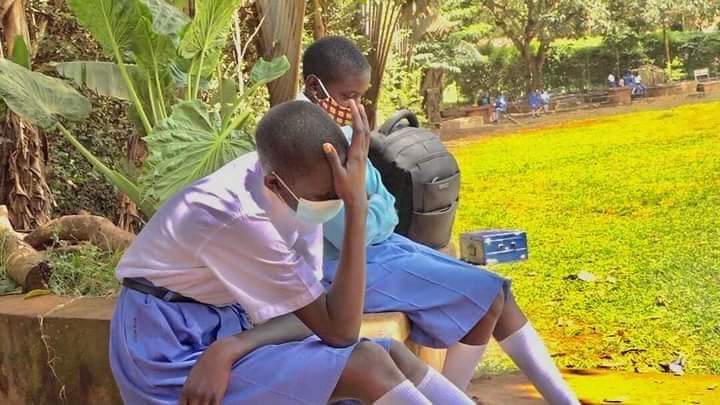
Uganda has once again been put under lockdown after the 3rd wave of Covid-19 hit the country. This is very unfortunate news for its education sector. Education is the first step for people to gain the knowledge, critical thinking, empowerment and skills needed to make the world a better place. In Uganda, it is perhaps one of the most affected areas thanks to the pandemic. Our correspondent, Martha Nalukenge paints a vivid picture for us on how the virus severely affected the country.
When Covid-19 broke out, it affected Uganda’s education sector so much. There was a time when education was only accessible either via the internet, radio or television. Such avenues are hardly within reach of students from financially poor backgrounds.
Life after the Lockdown
When the lockdown was eased everyone was relieved, filled with hope that they would be able to cope with the new normal. Many families were left unable to put food on the table for their members. Many girls had got pregnant and as a result, unable to go back to school. As you are well aware, we can’t talk of mitigating poverty without creating much opportunities for education.

The lucky few students who had access to education during the lockdown through, internet, radio and television, it kept them occupied and as such they didn’t face many challenges. However, for those who had no opportunity to learn, they became despaired and vulnerable. As a result, many girls after being enticed with money for something like a sanitary pad, got pregnant. This resulted in the current wave of many helpless young mothers. Boys, as a result of hopelessness, engaged in stealing for survival with many ending up in prison.
Phased Openings
As time went by, the government eased the lockdown in phases with students also returning to school in phases. As everyone was hoping for the opening up of the second last phase of students, another dangerous strain of Covid-19 broke out in Uganda. This new outbreak has changed everything and left the majority poor dejected. The President of Uganda announced another 42 day lockdown beginning on the 7th June 2021, and restricted the movement of people into other districts. Students who were already at school suffered a lot. Taxis, coaches and boda bodas (Motorcycle transport) hiked transport fares leaving many students stranded in taxi parks. In some areas, journey fares doubled while in other areas it tripled. For example, from Kampala to Masaka the cost would normally be between UGX: 15,000 – UGX: 20,000 but now it’s UGX: 40,000 – UGX: 60,000!! A motorcycle would charge on average UGX: 2,000 but now it costs UGX: 10,000 for a small journey.

What is happening now is that students who had not yet returned to school have been disappointed and are likely not to return to school. The same goes for those who had been in school for a short period, especially those in their final year. Parents and guardians are crying and feel shortchanged because they had just paid the tuition fee for their children yet they were sent back home after a short period. This has demoralized both the parents and their children. The 42 day lockdown means that breadwinners will not able to provide food for their families. Students who have no resources will not access online learning and will likely end up dropping out of their courses. This will have a lasting impact on the entire nation of Uganda. The impact of ceasing movement from one district to another has led to inflation. Prices of food and other essentials have gone up making life very hard for the less privileged families. Parents now have to choose between providing food for the family and buying sanitary towels for their daughters.
Support for the Civil Societies
It is now obvious that Covid-19 is here to stay and the infrastructure has to improve in order to keep up with these developments. Where the government has failed to address the situation, it is usually the civil society organizations that step up. They do their very best to clear the mess and support the most affected communities. However, most of these organizations lack resources to enable them do their vital work effectively. They lack appropriate means of transport. Things like vehicles are no longer a luxury but a necessity for civil society organizations who are doing an incredible work to enable them to reach the most affected communities.
It is therefore important, now more than before, to build the capacity of the civil society organizations in Uganda. This will enable them to address the pressing needs of the communities where they work.
Pictures: Martha Nalukenge
Vice Versa Global is a platform spearheaded by young African journalists who are keen on telling the African story from the youth’s point of view by creating socially conscious content through vlogs, columns, video, articles and discussions in order to share ideas and spark dialogue about social change. Follow us on Twitter and Facebook.
https://web.facebook.com/viceversaglobal/
https://twitter.com/globalviceversa
https://viceversaonline.nl/vice-versa-global/

Leave a Reply